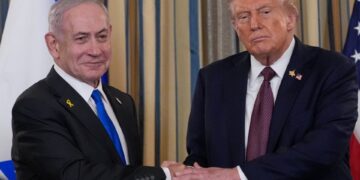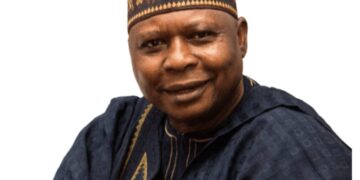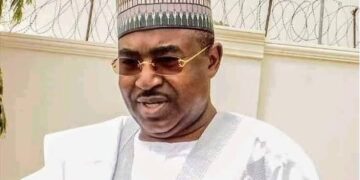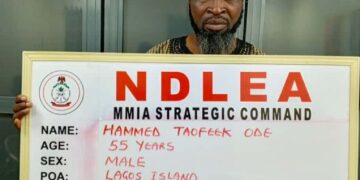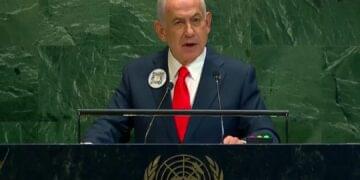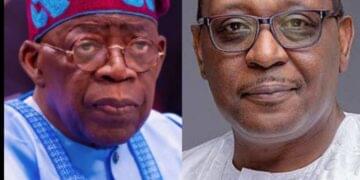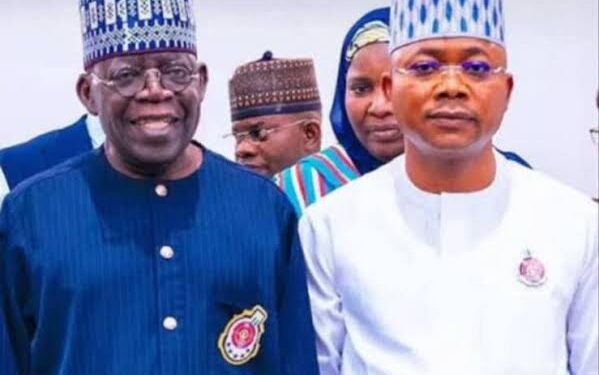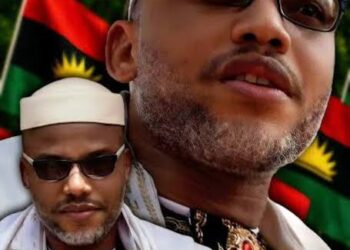President Bola Ahmed Tinubu on Thursday reaffirmed his administration’s commitment to maximising Nigeria’s human, material, and intellectual potential in order to deepen industrialisation, strengthen national security, and promote lasting peace and prosperity.
Addressing members of Course 33 of the National Defence College at the Council Chambers, State House, Abuja, President Tinubu urged the participants to see themselves as key drivers of national transformation. He commended their patriotism and dedication throughout the programme.
The President restated that his government will continue to provide inclusive platforms for addressing emerging socio-economic challenges, while also empowering national defence and military institutions to produce highly skilled officers capable of enhancing national power in a dynamic security environment.
“We are building a political, economic, and security future here. We must develop Nigeria. The strategic path to industrialisation, as outlined in your presentation, gives credence to that,” he said.
Reacting to the research paper titled “Harnessing Indigenous Manufacturing for Enhanced National Security by Year 2040,” President Tinubu assured that the recommendations would be thoroughly reviewed for possible implementation. He tasked the participants with deepening their intellectual inquiry into the nation’s evolving challenges.
“We must develop future strategic leaders equipped with the knowledge and analytical skills to strengthen the instruments of national power.
It is our joint responsibility to ensure that Nigeria is productive, inclusively governed, and positioned to safeguard the future of generations yet unborn,” the President added.
He emphasised resilience, patriotism, and strategic foresight as essential ingredients for Nigeria’s advancement, stressing the need to study global best practices while understanding the nation’s current trajectory.
President Tinubu also urged patience regarding the College’s request for the full development of its permanent site, which has been under construction since 2010.
NATIONAL DEFENCE COLLEGE BRIEFS PRESIDENT ON COURSE 33 THEME
Commandant of the National Defence College, Rear Admiral A. Ahmed, noted that the College—established in 1992—is Nigeria’s premier professional military education institution. He explained that the theme for Course 33 was “Strengthening Institutions for National Security and Development in Nigeria.”
He disclosed that Course 33 comprises 99 participants:
- 25 from the Nigerian Army
- 16 from the Navy
- 12 from the Air Force
- 5 from the Police
- 18 from various MDAs
- 23 international participants from Africa, Asia, and South America
To date, the College has graduated 3,097 participants from the Nigerian Armed Forces, Police, and allied countries.
RESEARCH TEAM HIGHLIGHTS GLOBAL INSIGHTS AND RECOMMENDATIONS
Captain M.A. Ahmed, who led the research team, stated that the course project aligns directly with President Tinubu’s Renewed Hope Agenda, especially in the areas of economic diversification, industrialisation, digitalisation, creativity, and manufacturing.
He revealed that study teams visited 23 countries across Africa, Europe, and Asia to examine models of indigenous manufacturing, given its critical role in wealth creation, job generation, and national security.
Using Qatar as a comparative case, he noted similarities in economic structure, particularly the dependency on oil and gas. He explained that Qatar’s massive investment—over $300 billion between 2011 and 2022—helped transform its economy.
The research team commended the Tinubu administration for its economic achievements, noting that only two countries currently have stronger GDP growth projections than Nigeria for 2026.
Their key recommendations include:
- Massive investment in infrastructure
- Strong product standardisation frameworks
- Increased patronage of DICON to support industrial and backward integration
- Major expansion in employment opportunities
- Presidential endorsement and implementation of Project Native 2040
The team concluded that visionary leadership and strategic execution are essential for Nigeria to fully harness indigenous manufacturing and strengthen national security by 2040.


